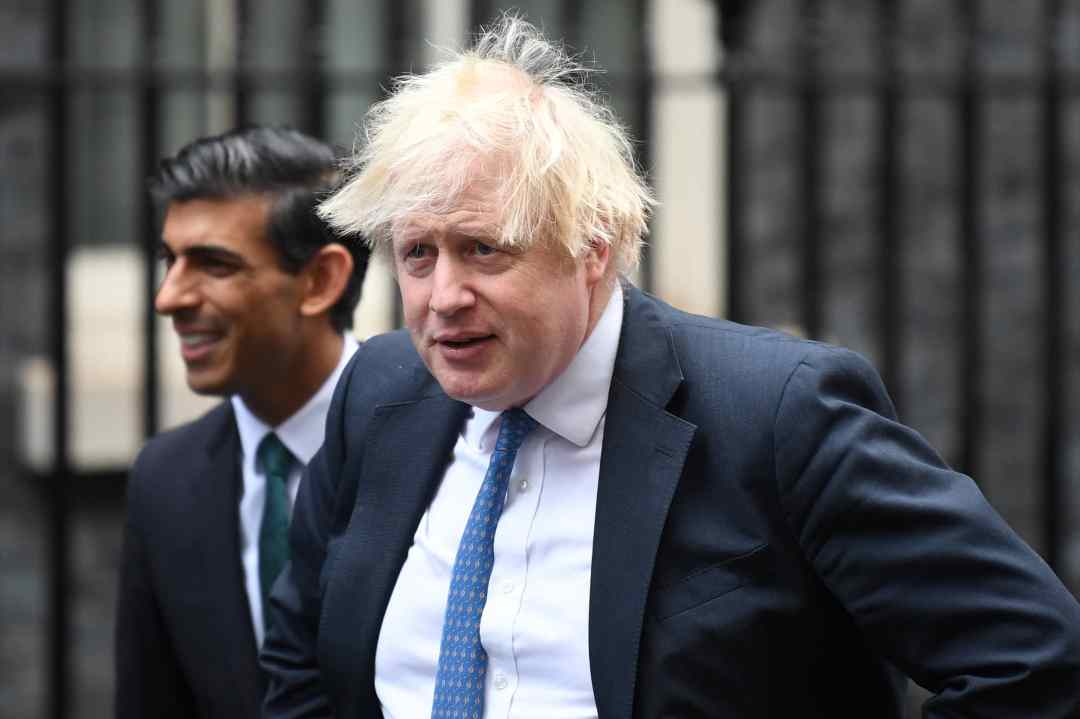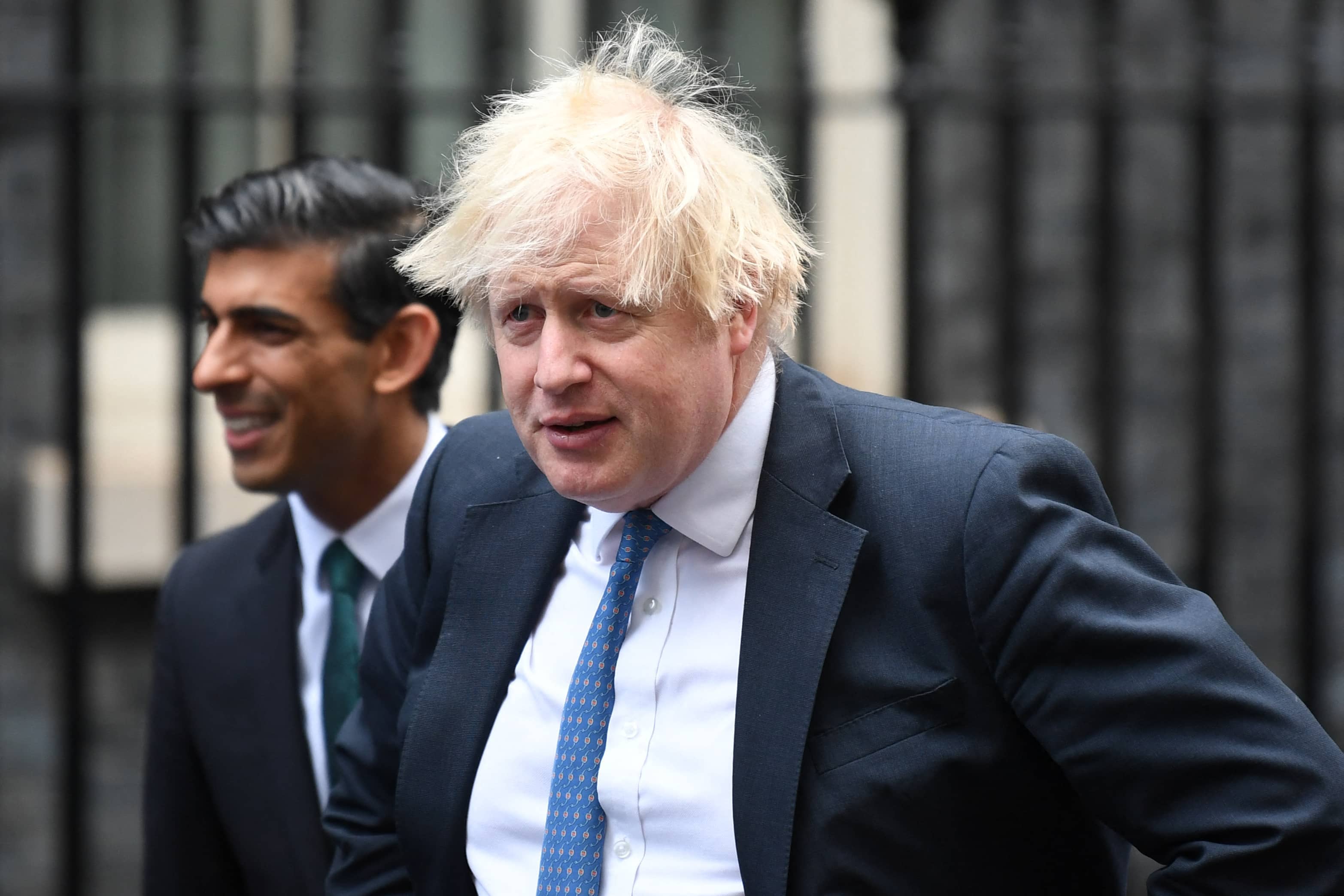Boris Johnson and Rishi Sunak’s plan to press on with the new health and social care levy is not a huge surprise. The deal between them last year to get social care reforms over the line boiled down to a simple principle: new spending projects must be fully funded. That remains as important to the Chancellor today as it was back then. With the Prime Minister still opposed to making cuts elsewhere to pay for his plans, the levy, by default, stays with us.
As I wrote last week, it was highly unlikely that recent updates to public finance figures – showing lower borrowing and higher tax receipts than expected – would count towards Sunak’s definition of ‘fully funded.’ Borrowing figures proved slightly less catastrophic than forecast, giving the Chancellor a bit more fiscal headroom, but with Britain still on track for its second-highest borrowing year in peacetime history, this was not going to be enough to convince Sunak that now is the time for a borrowing splurge, especially on long-term health policy.
So what’s surprising about the PM and Chancellor’s joint-comment piece in the Sunday Times today isn’t their doubling down on the levy, but their explanation for doing so. It’s a mash-up of Johnson’s big spending agenda and Sunak’s commitment to fiscal prudence side-by-side, and unsurprisingly, it reads as confused.
With the Prime Minister still opposed to making cuts elsewhere to pay for his plans, the levy, by default, stays with us
‘We are Thatcherites’, they say, ‘in the sense that we believe in sound money. There is no magic money tree.’ This is Sunak’s philosophy, which has ultimately won out in the social care funding battle. It’s the message he was pushing at Conservative Party conference last year: other ministers floated between panels and drinks receptions talking about the Tories as the party of ‘low tax’, Sunak was careful not to pretend that this was currently the case.
In the only public fringe event he spoke at, he described the NI tax hike as ‘a reminder that things have to be paid for.’ Rather than acting as if the Tories were still putting forward a vision for a lower-tax, smaller state, he framed it instead as confronting his own party with difficult truths: ‘I think people are now approaching those discussions with a sense of realism about what is and what isn’t possible…gosh, wouldn’t it be nice one day to be able to start reducing the tax burden.’ To do so, different spending decisions would need to be made.
But in today’s article, the Sunak side of the argument reads side-by-side with the Prime Minister’s narrative: that he and his Cabinet are ‘tax-cutting Conservatives.’ This may be the ultimate goal for both Johnson and Sunak, but it is factually not yet the case, as the Prime Minister has overseen taxes reaching a 71-year high under his premiership. At Tory conference just months ago, Johnson enjoyed the cheers and applause when declaring his direction for the country as one pointing towards a ‘low tax economy’. But putting in in black and white, in an article written to confirm tax hikes are still going ahead, invites far more scrutiny (and frankly dismay) than what he enjoyed amongst his most committed supporters in Manchester last year.
Perhaps more dangerous than the article’s mixed messages, however, are what it pledges the tax hike will achieve. ‘Every penny of that £39 billion will go on crucial objectives’ it promises, ‘including nine million more checks, scans and operations, and 50,000 more nurses, as well as boosting social care.’ The primary problem here is that the details of the social care policy have very little to do with quality of care or boosting provisions, but instead focus on the funding model: protecting the assets of wealthier social care patients, by having working-age taxpayers cover the costs instead.
And before most of the money even makes its way to social care, it goes to tackling the NHS backlog first. But will the cash injection be felt on the front lines? With six million people now estimated to be on NHS England’s waiting list, it is all but certain that countless families will see their tax bills go up from April, but that their relatives and friends in desperate need of testing and treatment won’t feel like they’ve benefited from the hefty tax and cash boost – certainly not in a timely manner.
With the cost of living crisis now acutely felt by the public, and inflation and energy bills still set to rise more, it makes sense that Johnson and Sunak would feel compelled to commit their reasons for the tax hikes to paper, rather than just quietly push forward with plans voted through last year. The problem with having done so in the same column is that their differences on spending and fiscal prudence are now even more on show – and the promises of what the tax hike will deliver have been, yet again, exaggerated far past what the policies are actually designed to do.








Comments